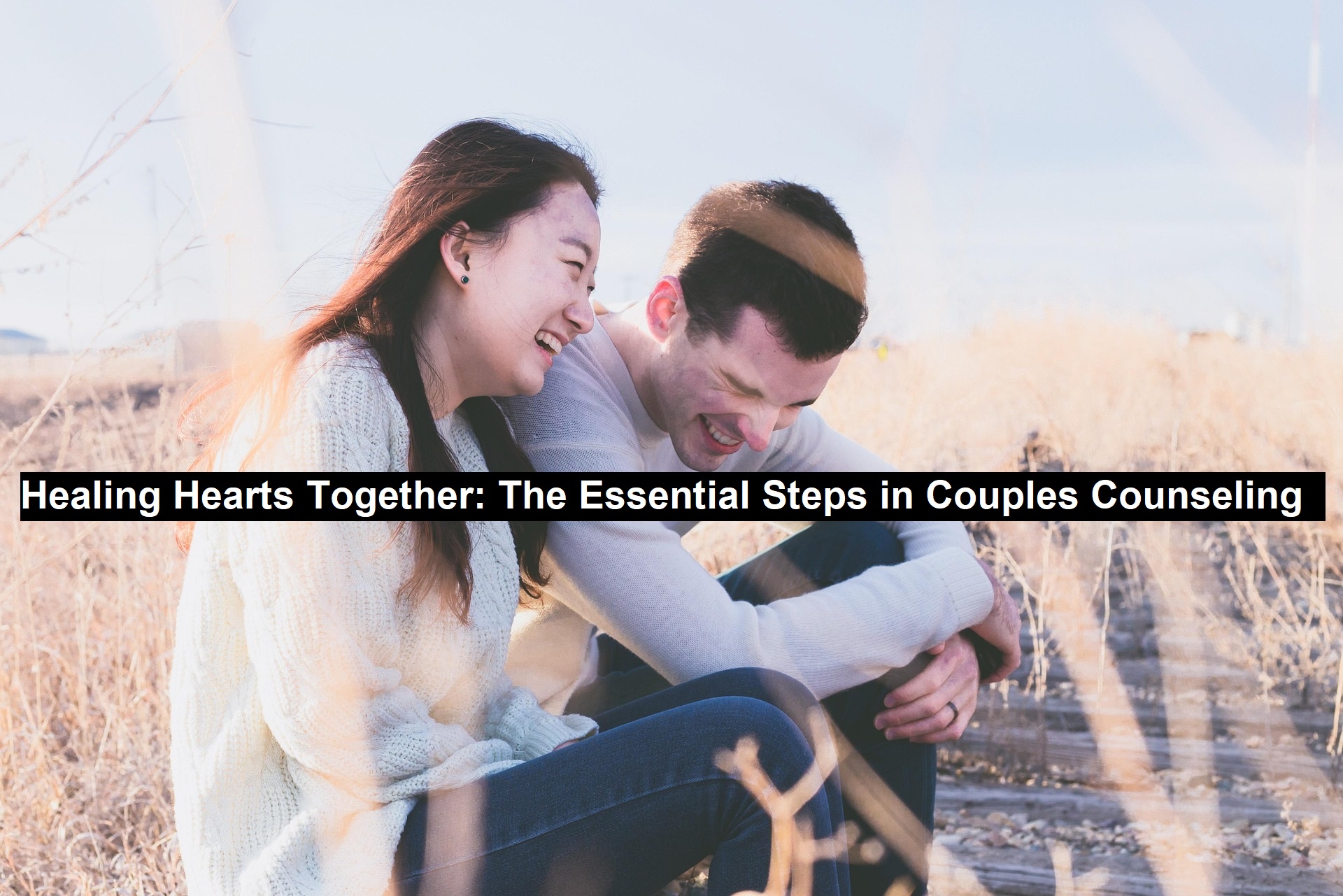Every relationship, whether romantic or otherwise, experiences its share of ups and downs. Sometimes, the challenges couples face can feel overwhelming. Communication breakdowns, trust issues, and unaddressed emotional needs can build up over time, potentially leading to a disconnect between partners. When these difficulties seem insurmountable, couples counseling can provide the necessary tools and guidance to heal and rebuild a relationship.
In this blog, we will explore the essential steps involved in couples counseling, shedding light on how this process can help partners find common ground, reignite emotional intimacy, and restore a sense of togetherness.
What is Couples Counseling?
At its core, couples counseling is a therapeutic approach aimed at helping partners address and work through their relationship issues with the help of a trained professional. A couples counselor acts as a neutral third party, facilitating communication, fostering understanding, and guiding partners toward healthier ways of interacting. The goal of couples counseling is to improve relationship dynamics, resolve conflicts, and strengthen emotional connections.
Whether you are dealing with communication problems, infidelity, or the stress of raising children together, couples counseling offers a structured space to address underlying issues in a safe and supportive environment.
Read: DIY Fashion: Transforming Blank Apparel into Runway-Inspired Pieces
Step 1: Acknowledging the Need for Help
The first and most critical step in the couples counseling journey is acknowledging that your relationship needs help. For many couples, this is the hardest step because it requires vulnerability and a willingness to face difficult emotions and situations. Recognizing that counseling is an option and that seeking professional guidance is not a sign of failure is key to moving forward.
Tip: If you or your partner feel hesitant about seeking counseling, try to see it as an opportunity for growth. A relationship, like any other aspect of life, can benefit from expert guidance and ongoing care.
One partner often realizes they need counseling before the other does. If this is the case, make an effort to be empathetic when having the talk and state your wish to strengthen the bond. To avoid coming across as accusatory, use “I” statements instead of “you” comments. Say “I’ve been feeling disconnected,” for instance, rather than “You don’t listen to me.”
Step 2: Choosing the Right Couples Counselor
Once both partners agree to pursue couples counseling, the next step is selecting the right counselor. This decision is crucial because the counselor you choose will play a significant role in the healing process.
When looking for a couples counselor, consider the following:
- Qualifications: Look for someone who is licensed and trained in marriage or couples therapy. Counselors with a background in psychology, social work, or marriage and family therapy (MFT) are often well-equipped to handle relationship issues.
- Specialization: Some counselors specialize in particular relationship dynamics, such as infidelity, sexual intimacy, or parenting struggles. Make sure the counselor you choose has experience dealing with the issues you’re facing.
- Approach and Style: Different counselors employ different therapeutic approaches. Some might focus on communication strategies, while others may emphasize emotional healing or conflict resolution. It’s important to find a counselor whose style aligns with your goals as a couple.
Tip: If possible, schedule an initial consultation or meeting with the counselor before committing to ongoing sessions. This gives you an opportunity to gauge the counselor’s approach and determine if it feels like a good fit.
Step 3: Setting Clear Goals and Expectations
Before jumping into the therapy process, it’s important to set clear goals and expectations for the counseling sessions. In couples counseling, you and your partner should identify what you both hope to achieve from the sessions. These goals will guide the counseling process and give you both something concrete to work toward.
Some common goals in couples counseling might include:
- Improving communication: Learning how to listen actively and speak openly without fear of judgment.
- Building trust: Addressing issues like infidelity or broken promises and working toward rebuilding trust.
- Managing conflict: Developing healthy ways to argue and resolve disagreements.
- Reconnecting emotionally: Rekindling intimacy and rediscovering the emotional bond that brought you together.
- Navigating life transitions: Working through major life events such as moving, career changes, or becoming parents.
Be sure to communicate openly with your counselor about your goals and expectations for the process. Setting a roadmap for your journey helps both partners stay focused on the purpose of the sessions, and it creates a sense of accountability for progress.
Tip: Stay flexible as you work toward your goals. Sometimes, new issues or dynamics might surface during counseling, and it’s important to be open to adjusting your approach when necessary.
Step 4: Open and Honest Communication
Effective communication is at the heart of couples counseling. In many relationships, communication breakdowns can be a major source of conflict. Couples often fall into patterns of miscommunication, where they assume their partner knows what they need or desire without expressing it clearly.
During couples counseling, you’ll learn how to communicate more effectively, ensuring that both partners feel heard and understood. This might involve learning specific communication techniques such as active listening, which requires one partner to fully focus on what the other is saying without interrupting or planning a response.
One common exercise in couples counseling is the “speaker-listener” technique, where one partner speaks while the other listens without judgment or commentary. After the speaker has finished, the listener summarizes what they heard to ensure clarity. This promotes mutual understanding and creates a safer environment for sharing emotions.
Tip: Avoid blaming language during conversations. Using statements like “you always” or “you never” can lead to defensiveness. Instead, use “I” statements to express your feelings in a non-confrontational way.
Step 5: Learning Coping Strategies and Conflict Resolution Skills
No relationship is without conflict. The difference between healthy and unhealthy relationships often lies in how couples handle disputes. In couples counseling, you’ll gain valuable tools for managing conflict in constructive ways.
Common conflict resolution techniques taught in counseling include:
- Time-outs: Take a break from an argument to cool down and collect your thoughts before continuing the discussion.
- Problem-solving: Learning how to approach problems as a team, identifying solutions together rather than competing against each other.
- Emotional regulation: Developing the ability to manage your emotions and avoid reacting impulsively in moments of stress or anger.
- Compromise: Understanding that not all issues have a perfect solution, and sometimes finding a middle ground is the most realistic option.
By practicing these skills, couples can avoid falling into toxic patterns of arguing or shutting down, which can erode the relationship over time. Instead, they learn to navigate challenges in a way that strengthens their bond.
Tip: It’s important to practice these conflict resolution skills outside of therapy as well. The more you practice them in real-life situations, the more natural they will become.
Conclusion
Healing a relationship takes time, effort, and commitment from both partners. Couples counseling offers a structured and supportive environment where couples can work through their issues, improve communication, and deepen their emotional connection. By following the essential steps in this process—acknowledging the need for help, choosing the right counselor, setting clear goals, and learning new relationship skills—couples can overcome their challenges and build a stronger, healthier relationship.
Ultimately, Couples Counseling New York City is about healing hearts together. It provides the tools to not only survive difficult times but to thrive in the face of adversity, creating a lasting bond that supports both partners in their journey through life.





